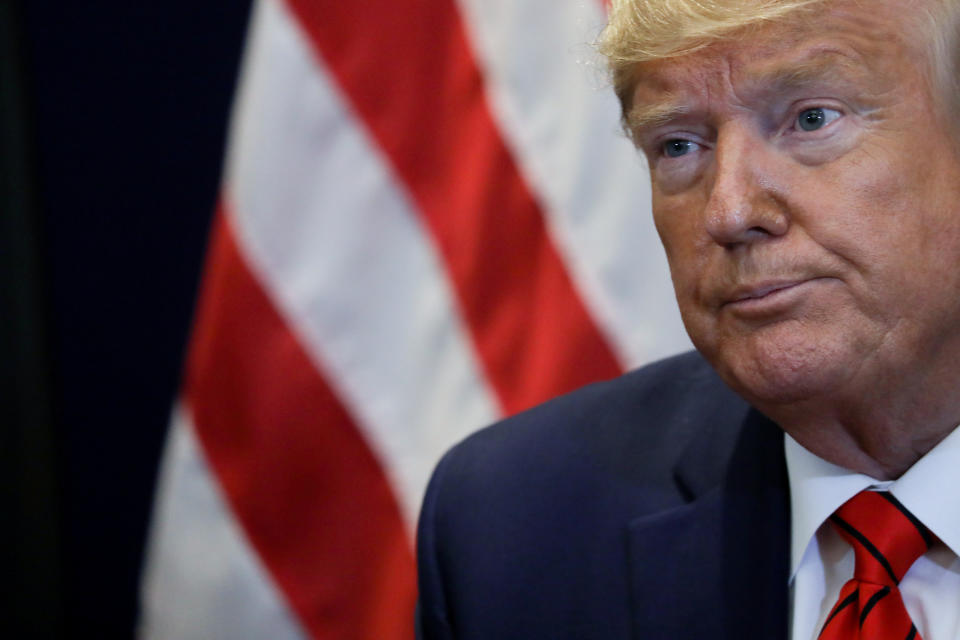Trump impeachment inquiry is no reason to overhaul your investments, JPMorgan says
Investors might be wondering how to position themselves on the heels of a formal impeachment investigation of President Donald Trump launched on Tuesday.
According to John Normand, head of cross-asset fundamental strategy at JPMorgan Chase, there's no need to make any significant portfolio changes.
"Despite the drama this process will inject into the rest of the President's first term, there is little justification for altering asset allocation now, unless one thinks that this issue is the decisive one that tips the US economy into sub-trend growth and/or a profits recession," writes Normand. "To us, impeachment more seems yet another constraint on returns over the next year, given the newer uncertainties created around international and domestic policy."
On Tuesday, House Speaker Nancy Pelosi said Congress would begin a formal impeachment inquiry of President Donald Trump, which centers around his dealings with Ukraine.
To be sure, impeachment is a process that can take months to unfold. The base case is that the Democratic-led House will impeach Trump, but the real hurdle is the Senate where Republicans hold 53 seats and a two-thirds majority to convict will be unlikely.
The market reaction to the reports on Tuesday was muted, with U.S. stocks falling less than 1%, which was likely attributed mostly to a weaker-than-expected read on consumer confidence.
Rare and context-specific
In the note, Normand writes that it "would be complacent to think that the impeachment process just adds another ring to the circus and will prove inconsequential for markets into 2020."
He explained that impeachments are "rare events" with market outcomes "too context-specific." As such, past examples of disgraced presidencies need to be examined individually.
Normand noted that Nixon's impeachment process began shortly after the First Oil Shock in late 1973 that resulted in recession and rising inflation. Nixon resigned in August 1974. Elsewhere, Clinton's impeachment in December 1998 was "almost a non-event for the markets" as stocks and credit had already experienced the Asian Crisis, the Russian default, and the collapse of Long-Term Capital Management that summer.

Trump's possible impeachment comes with a unique context against a backdrop of a "global growth slowdown, classic late-cycle vulnerabilities, high market valuations but somewhat defensive investor positioning," Normand writes.
The "international wildcards" for Trump are U.S.-China trade and U.S.-Iran relations and how an impeachment process might impact his behavior with other countries.
"The optimistic view is that Trump will become more conciliatory in order to counter a possible drop in his approval rating during an impeachment process," he writes. "The pessimistic view is that other countries will compound the President's domestic challenges with international ones in hopes of scuppering his re-election bid."
Of course, the "domestic wildcard" is the impact of the 2020 elections, which could yield a myriad of scenarios impacting issues from taxes to healthcare to trade depending on how the races for the White House, House, and Senate play out.
-
Julia La Roche is a finance reporter at Yahoo Finance. Follow her on Twitter.

